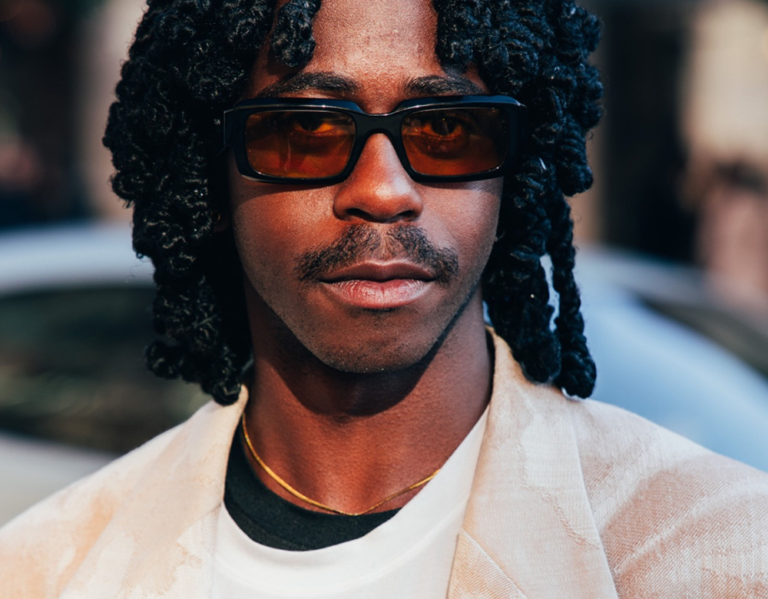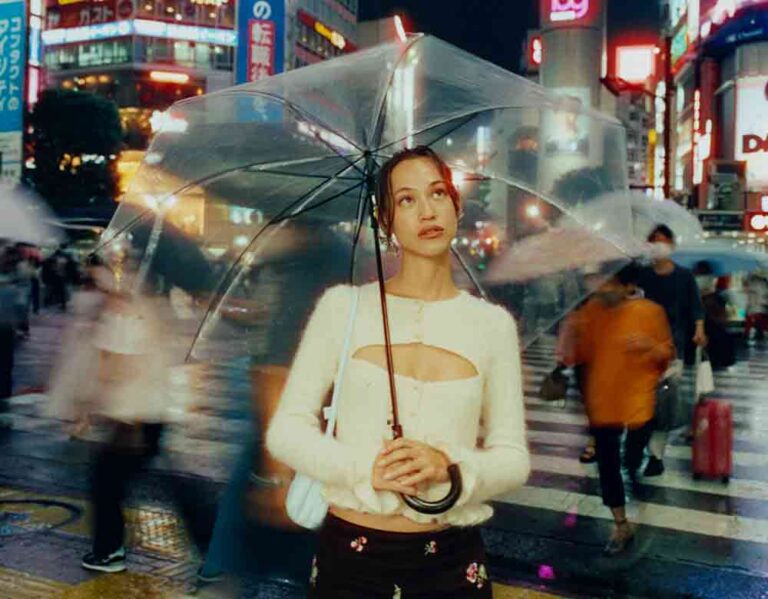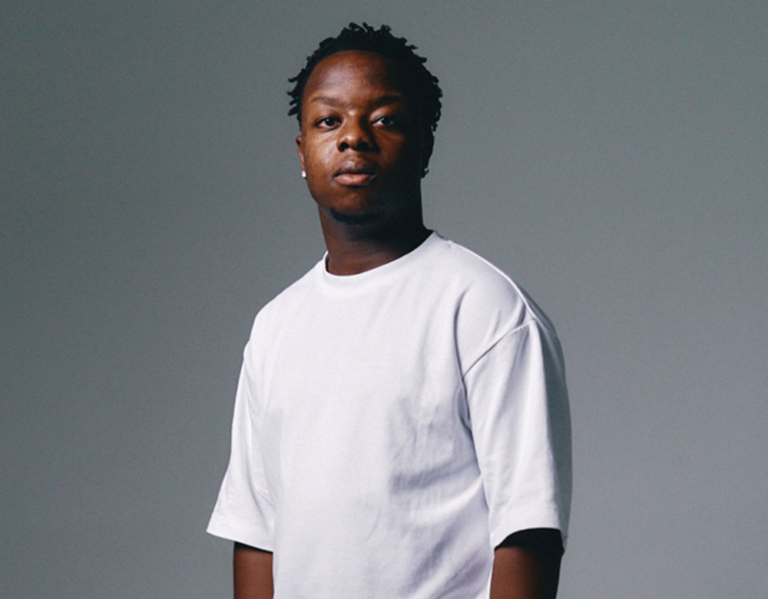Yagamoto, Movement Director, Creative Director, London

Hey, could you introduce yourself to us?
My name is Abdourahman Njie, also known as Yagamato. I was born in Sweden, raised in Southend-on-Sea, and am of Gambian and Senegalese heritage. I am 28 years old and I currently live in London.
"I like to think of myself as a conductor of energy within humans, helping them convey different emotions and develop characteristics so they can embody them and apply them to performances."
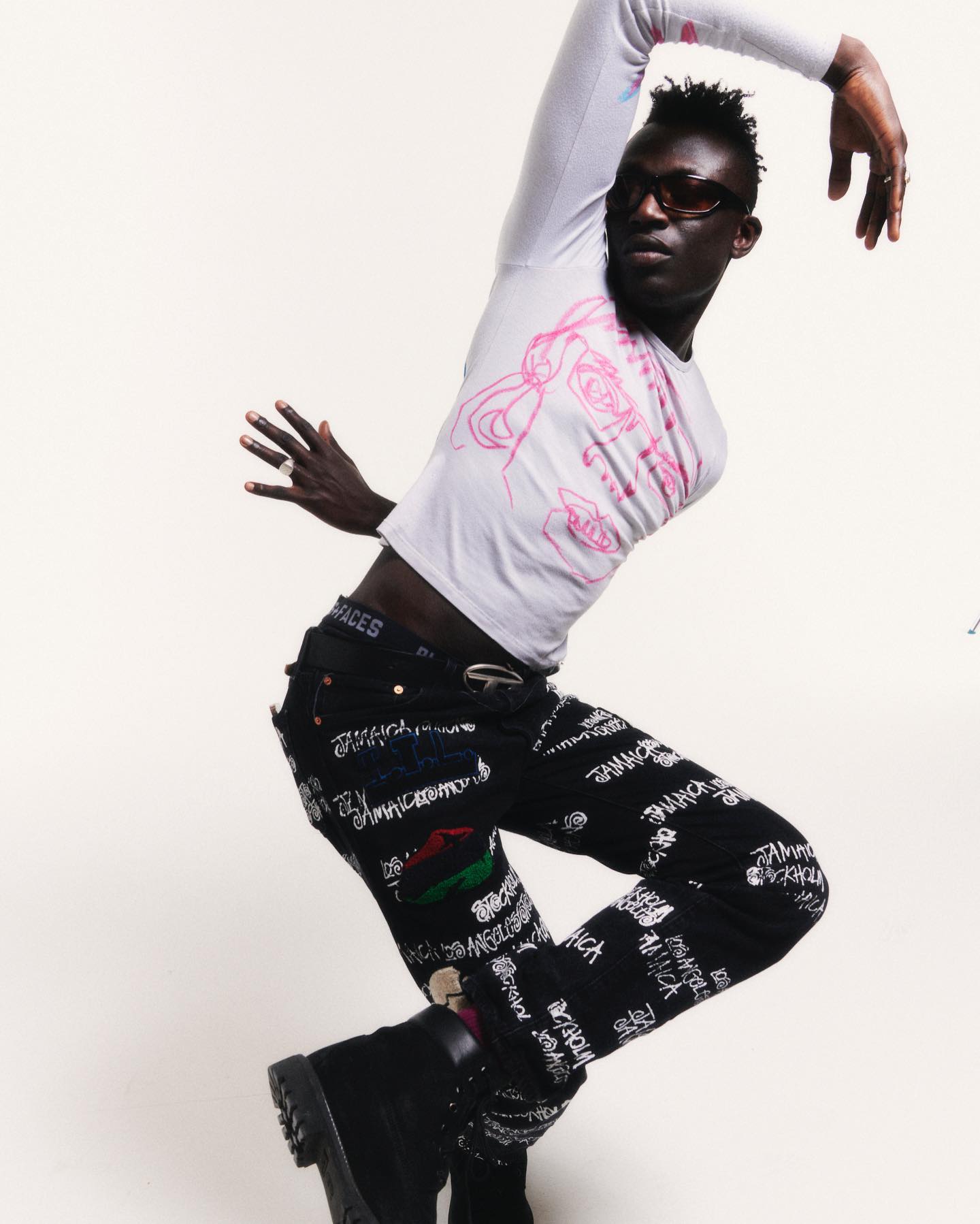
Tell us about your job and what that title means to you.
First and foremost, I would call myself a director, but the main title that I get given is Movement Director or Creative Director. I like to think of myself as a conductor of energy within humans, helping them convey different emotions and develop characteristics so they can embody them and apply them to performances. Movement directors have a really big history in the worlds of art, theatre, and film, and with fashion, it’s been brought into the mainstream. In the past three or four years, I’ve been able to give the title some more visibility.
With so many different roles and responsibilities present within your role as a Movement Director, how do you personally define your role?
I’m the middleman between the photographer and the subject; the connection helps to bring those two elements together and translate the ideas of the director. It’s quite intimate, as I work closely with both. [Being a Movement Director] is about creating relationships on both sides of the spectrum.
With the artists [that I work with], first and foremost, it’s about creating a safe space for them, a good working environment that they can thrive in. But it’s also about finding out what their capabilities are, what their strengths, what their weaknesses are, and how to capture them in the best light. If I want them to engage with me in a [certain] way, how can we do that? A lot of it is based on micro-analysing your environment, from the set design to the hair, the makeup, clothing, and every element. I bridge everything together and make it come to life. Sometimes it can be minimal, sometimes I may have to go big for it. So it’s a massive responsibility.
What do you love most about your job?
The transformation of things coming to life. The best part for me is getting 100% out of somebody. If I can do that it satisfies me that I’ve been teaching, passing down my knowledge.
I’ve taken a long route to get here. I come from an acting and theatre background, way before university. I went to university, dropped out twice, and got signed as a model about a month later. I did that for about four years and the majority of stuff I did was editorials, not too many campaigns, so I wasn’t getting paid. I was just sponging a lot of information. Afterwards, I wanted to have more autonomy over my image and, because I had all this back knowledge from the things I’d learnt in theatre school and modelling and what it was like being behind the camera from studying, I made the transition into being a director.
As a director, the key thing for me was that I felt like people wanted to come into a space of being. There’s a hierarchy – the photographer, the model, all these things. I wanted to come in and apply how I would love to be treated, or how I wanted to be treated to the industry – the things that were missing.
In the past ten years, probably just before I came in, there were a lot of toxic attitudes and toxic elements to the way people would be treated on set, just in the way that we communicate with each other or specific boundaries. When I came into a position of power, I said, “Let me come and create but bring a fresh attitude towards creating art in these environments. Let me treat people fairly.” At the end of the day, we’re just making art, it’s not that deep. It’s never that deep. It’s supposed to be an exciting, fun, daring, courageous, brave process. To entertain all those elements you have to be in the right mindset. So, the thing that I love most about my job is creating those spaces. The thing that satisfies me most is teaching and watching the evolution of what I’ve been taught come to life.
"when I started in a moving direction, I didn't even know it was a job title."
What do you find challenging about being a Movement Director?
The most challenging part, in the early days, was that I was overcompensating too much. In the early days, you’re seeking validation in regards to being in that space. For example, when I started in a moving direction, I didn’t even know it was a job title.
I’ve been winging it, I’ve never assisted anyone, No one’s ever taught me – I’ve created my formula, my method. Because you’re freestyling, you have imposter syndrome of, like, “Am I supposed to be in this space? Do I need to overcompensate to make sure it looks like I’m working?” I spoke to Les Child, who is one of the pioneers of movement direction. He used to get flown to Milan for Gucci shoots in the 80s and they would send him away once he got there because they would find out he was Black. He said he built a lot of thick skin from that. But in all this, he had to consistently remind himself that he deserved to be here. It made me think that the more I stopped seeking validation from others in regards to why I’m here, the easier it got and the more I started to believe in myself.
In the beginning, you feel quite nervous. The first time I worked with Naomi Campbell I was, like, shitting myself, you know? Then I woke up in the morning and I was stressed out because I was, like, “How am I going to come and teach the mother of movement how to move?” [I had the] same kind of feeling I had when I worked with Michael Jordan. It’s like, “How am I going to prove my worth?” Once I worked with Naomi and I started giving her direction, I was like, “Oh wait, hold on a minute, everyone needs this.” No one is exempt, same thing with Michael. The more you create doubt for yourself, the more it’s visible.
The more hours, more practice, and more application you put into what you’re doing, then you’ll become a professional in due time. Embrace the opportunity. Just remind yourself that you deserve to be in that space.
What do you think would be your career highlight so far?
It’s quite hard to kind of summarise it. I mention Naomi Campbell a lot but Micheal Jordan was a great example because, I think I’ve still got it here… Yagamoto takes out his phone to show me his screensaver featuring an image on Chiacgo Bulls Micheal Jordan dunking on the LA Lakers Magic Johnson during the 1991 NBA finals.
So, I had that because I’d watched The Last Dance during Covid and then I got really inspired. I really like this photo because it symbolises reaching for your goals, hitting the target. That’s the kind of mentality I started to apply to myself.
I’m a massive believer in manifestation. I started manifesting the idea of working with him years ago, and I said to myself I’m not going to take this photo down until I do it. Then, at the start of this year, my agency called me. They offered it to me by saying you’ll never guess who we’ve got for you. When they told me it was Micheal I nearly fell over because it was just so crazy. But it was in such alignment with how my whole career has been.
In regards to manifestation, when I first started modelling, I said to my best friend, “Do you think I’ll ever work with Naomi Campbell?” He was like, “Nah, never. Calm down,” but I thought I’m going to prove to myself that I can. Both of those were two great highlights of mine because they’re things that I manifested and they came to fruition.
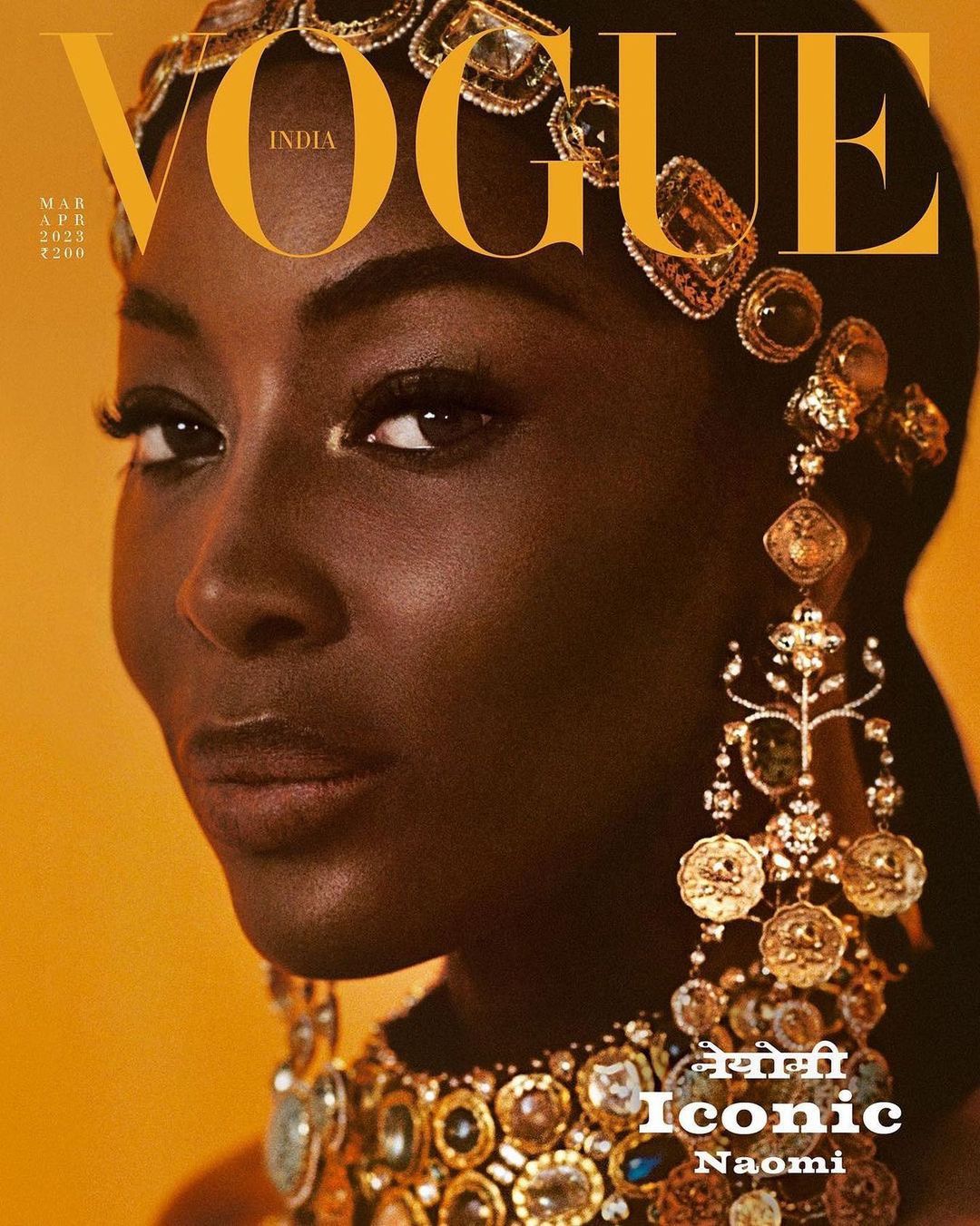
What qualities or personality traits do you think make someone a strong candidate to flourish in the role that you have?
Having good social awareness and a good understanding of social anthropology. You have to understand people, understand how they work, what motivates them, what demotivates them, and how to keep it personal. Being a clear communicator, having patience, having empathy, affection, social decorum and a humble attitude are good.
What I see attracts people to me when I’m working with them is a certain energy I bring to set and being able to dictate the pace of my environment. For example, I worked with 60 people the other day. Four years ago, I would have been like, “Oh fuck, that’s a lot of people.”[Instead], before I left the house I thought, “I’m going to have a lot of fun today with these people.” I got there, shook everyone’s hand individually and said, “Look, we’re going to have fun, we’re going to have a great time together.” It’s about putting people at ease. That comes with a lot of the attributes I mentioned… empathy, affection and all these things.
What advice would you have for people interested in getting into your role or the career you have?
Communicate with your body. Create a dialogue with your body and then study how to translate that same dialogue to other people. You can be so technically gifted but that doesn’t mean anything to me. If someone wants to assist me, that doesn’t mean anything because that’s all about you. How are you going to help someone have a dialogue with themselves? That’s what movement is. If you can bend your back perfectly, that’s fine. But if someone can’t do that, then how are you going to help them get to that place? It’s about not forcing people to do what you can do but encouraging them to do what they can do to their best capability.
"Create a dialogue with your body and then study how to translate that same dialogue to other people."
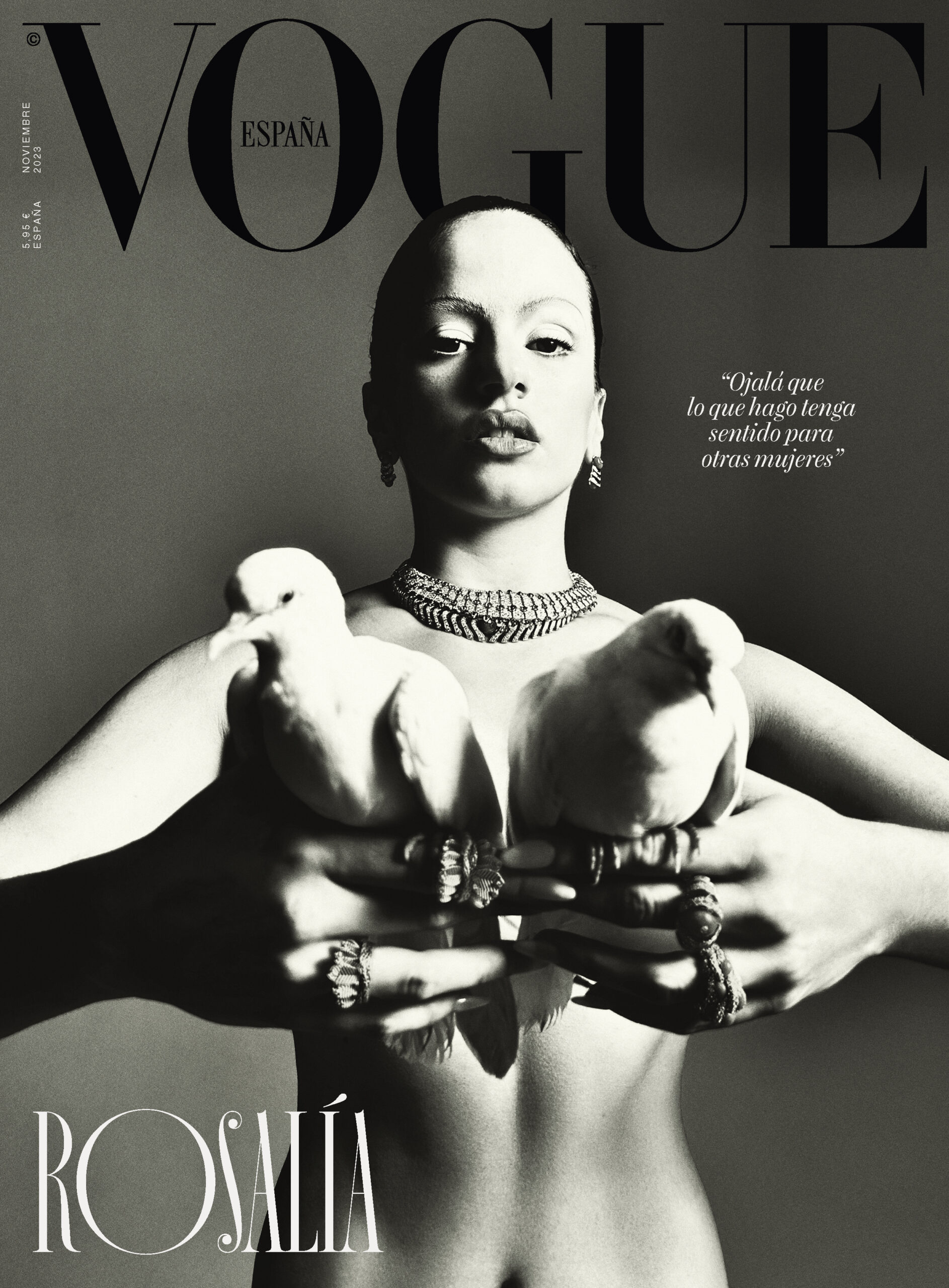
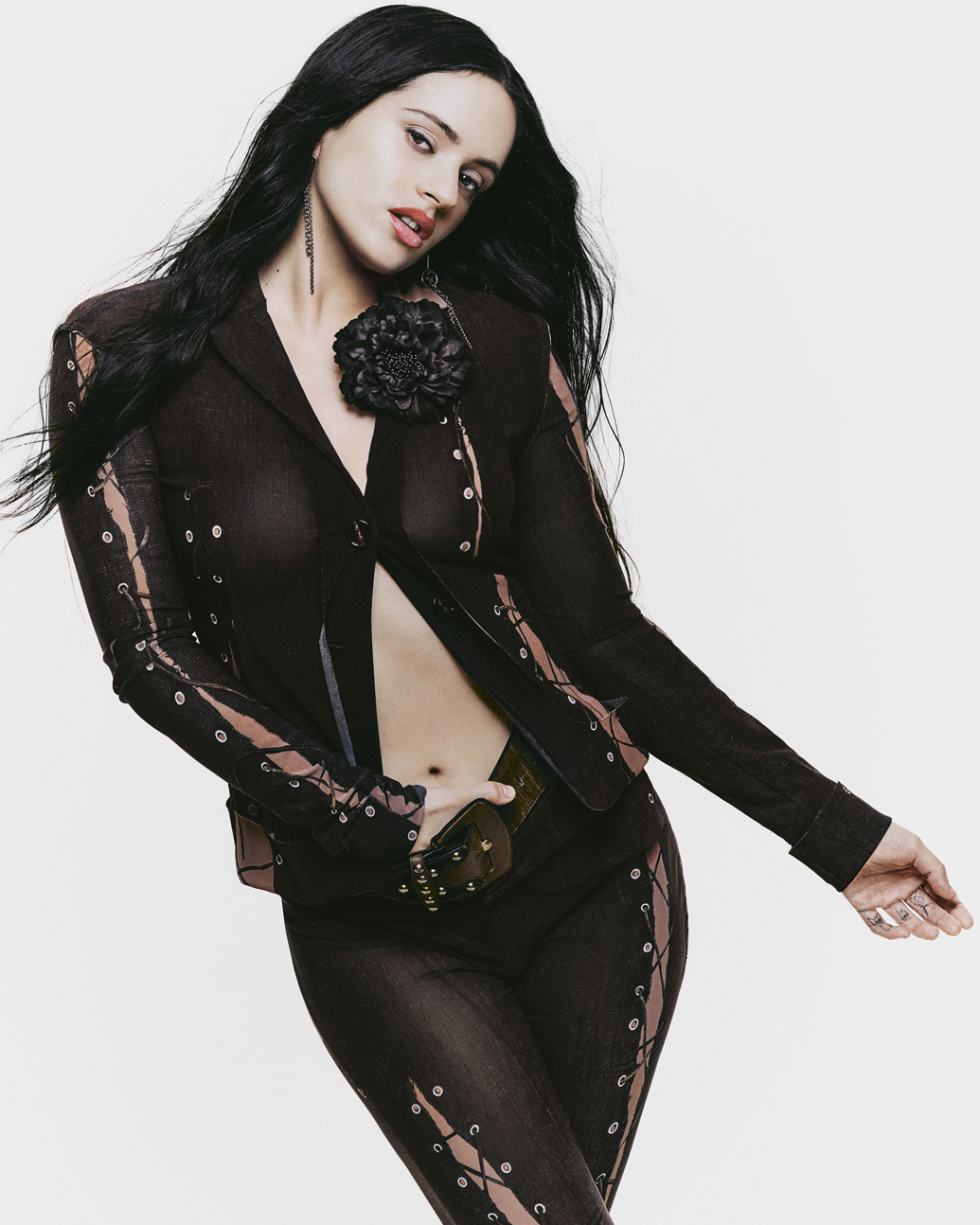
Credits:
Hero Image: CAMPBELL ADDY
Image 01: CAMPBELL ADDY
Image 02: CAMPBELL ADDY
Image 03: KATIE BURNETT
Image 04: RAFAEL PAVAROTTI
LATEST THAT MAY INTEREST YOU


